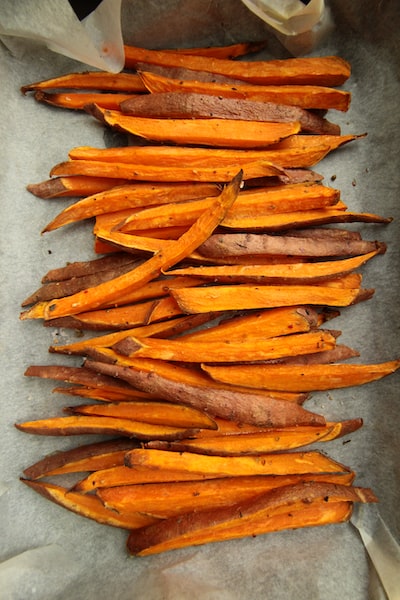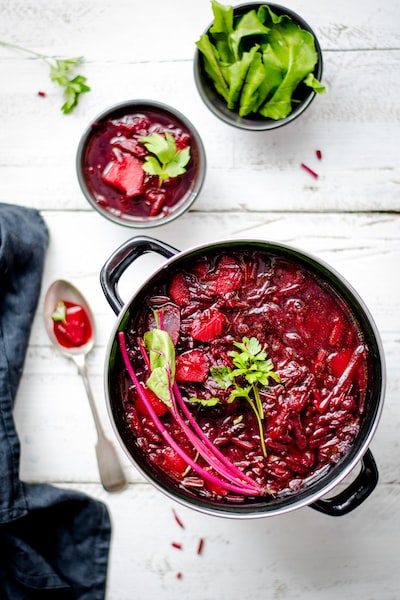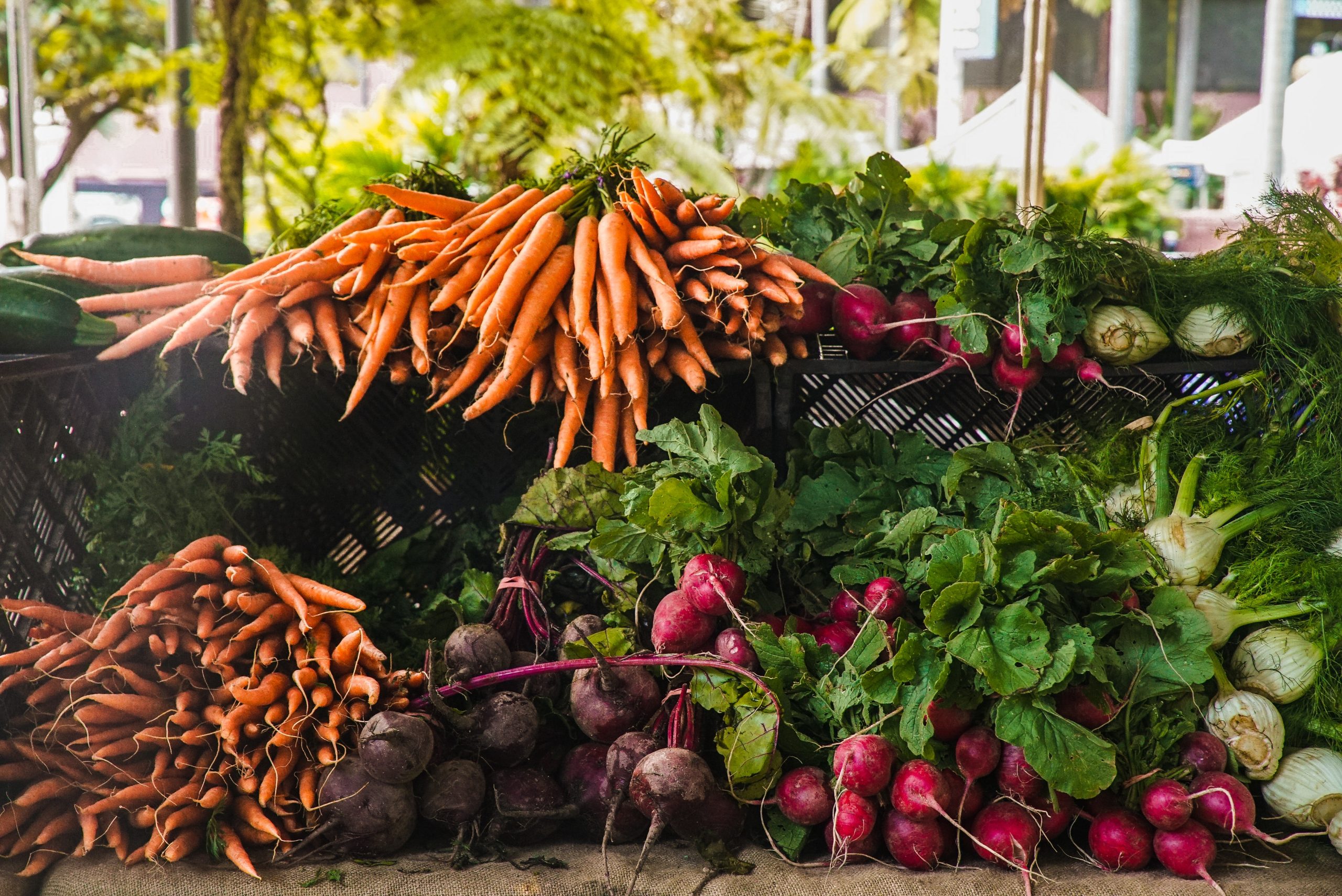Have you ever wondered what exactly root vegetables are? Root vegetables are a group of plants that grow underground and have edible roots. They’re packed with nutrients, have a long shelf life, and can be used in a variety of recipes. In this blog, we’ll take a deep dive into the world of root vegetables. We will explore the types of root vegetables available, their nutritional benefits, how they contribute to a healthy diet, and how to store and prepare them. Whether you’re a vegan or vegetarian looking for new sources of nutrients or someone looking to add more color to their meals, this blog is for you. Join us as we demystify root vegetables!
Understanding Root Vegetables
Root vegetables, such as horseradish, celeriac, and beetroot, are not only delicious but also nutrient-dense, offering a wide range of health benefits. Packed with vitamins, minerals, and antioxidants, these veggies support overall well-being. From roasting and baking to stir-frying, there are countless ways to cook them. Whether added to stews, soups, or salads, root vegetables add a burst of flavor and a dose of nutrition to your meals. Incorporating these veggies into your diet can promote digestion, boost immunity, and contribute to a healthy lifestyle. So why not explore the world of root vegetables and enjoy their taste and health benefits?
Are Root Vegetables?
Root vegetables are a diverse group of plants with edible parts that grow underground, such as taproots, tubers, or rhizomes. Some popular examples include carrots, potatoes, beets, and ginger. These vegetables are known for their crunchy texture and sweet flavor, making them versatile in cooking. They are often considered filling and satisfying due to their high starch content. Root vegetables are not only delicious but also nutritious, offering a wealth of vitamins, minerals, and antioxidants. Incorporating these veggies into your diet can support digestion, boost immunity, and contribute to overall well-being.
https://nutritiondata.self.com/facts/vegetables-and-vegetable-products/2394/2
History and Origin of Root Vegetables
Root vegetables have a rich history dating back thousands of years. These nutritious veggies were a staple in many ancient civilizations. Carrots, for example, were first cultivated in Afghanistan and later spread throughout Asia and Europe. Potatoes have their origins in the Andes Mountains of South America, while beets have a long history that can be traced back to ancient Greece and Rome. These root vegetables, along with other varieties like horseradish, celeriac, and taro, have been enjoyed for centuries, offering not only delicious flavors but also a host of health benefits.
Common Types of Root Vegetables
Root vegetables come in a variety of types, each with their own unique flavors and characteristics. Carrots, for instance, are known for their vibrant color and sweet taste, making them a popular choice in many dishes. Potatoes, on the other hand, offer versatility with various varieties like russet, red, and Yukon gold. If you’re looking for a nutritious alternative, sweet potatoes and yams provide a naturally sweet taste along with a host of health benefits. Another colorful option is beets, which add a vibrant touch to any meal and have a distinct earthy flavor. And let’s not forget ginger and turmeric, two medicinal roots known for their anti-inflammatory properties. These common types of root vegetables offer a wide range of flavors and nutritional benefits to enhance your culinary experience.
Carrots and Their Varieties
Carrots come in a variety of vibrant colors, including orange, purple, yellow, and white, making them a visually appealing addition to any dish. Not only do they add a pop of color, but they are also packed with nutritional benefits. Carrots are an excellent source of vitamin A, beta-carotene, and antioxidants, which are known to promote eye health and boost the immune system. These versatile root vegetables can be enjoyed in various ways – raw as a crunchy snack, steamed or roasted as a side dish, or incorporated into soups, stews, and even desserts. With their natural sweetness and satisfying crunch, carrots bring both taste and nutrition to your meals.

The Versatility of Potatoes
Potatoes, one of the most versatile root vegetables, can be prepared in various ways. They can be boiled, mashed, roasted, or fried to suit different culinary preferences. Apart from their versatility, potatoes also offer nutritional benefits. They are a good source of vitamin C, potassium, and fiber, making them a healthy choice. With different varieties having distinct textures and flavors, potatoes can be incorporated into a wide range of dishes. It’s no wonder they are a staple ingredient in many cuisines worldwide. So whether you’re craving a comforting bowl of mashed potatoes or crispy french fries, potatoes have got you covered.

Sweet Potatoes & Yams
Sweet potatoes and yams are often confused, but they have distinct characteristics. While sweet potatoes have a thin skin and come in various colors like orange, purple, and white, yams have a rough, dark skin and a starchy texture. Both sweet potatoes and yams are packed with fiber, vitamin A, and antioxidants. These root vegetables can be cooked in different ways, from baking and mashing to being used in desserts like pies and puddings. Incorporating sweet potatoes and yams into your diet can bring a range of nutritional benefits.

Beets: A Colorful Addition to any Meal
Beets, with their vibrant red color, are a colorful addition to any meal. But did you know that they can also come in golden, striped, or white varieties? These root vegetables are not just visually appealing; they are packed with nutrients too. Beets are rich in folate, manganese, and vitamin C. They can be prepared in various ways – roasted, pickled, or used in salads and smoothies. With their sweet and earthy flavor, beets add a unique taste to dishes while also providing a natural source of sweetness. Incorporating beets into your meals is a delicious and healthy choice.

Ginger and Turmeric: The Medicinal Roots
Ginger and turmeric are two medicinal roots that have been used for centuries for their numerous health benefits. Ginger is known for its spicy and aromatic flavor, and it has been traditionally used to aid digestion and reduce inflammation. Turmeric, on the other hand, is a bright yellow root from the ginger family. It contains curcumin, a powerful compound with anti-inflammatory and antioxidant effects. Both ginger and turmeric can be used fresh or dried in various dishes and beverages, making them versatile additions to any kitchen. Incorporating these roots into your diet can help support your overall well-being.

Unearthing the Nutritional Benefits of Root Vegetables
Root vegetables, such as horseradish, celeriac, beetroot, and taro, are not just delicious additions to meals, but they are also nutrition powerhouses. These veggies are low in calories and high in fiber, making them excellent choices for weight management. Additionally, they are packed with essential vitamins and minerals like vitamin C, potassium, and manganese.
The antioxidants found in root vegetables, including fennel, rutabagas, kohlrabi, and jerusalem artichokes, help protect against chronic diseases by combating free radicals. Incorporating these vibrant veggies into your diet also supports digestion and overall health. So why not explore the wide variety of root vegetables available year-round and reap their many health benefits?
Why are Root Vegetables Good for You?
Root vegetables offer a plethora of health benefits. They are packed with essential vitamins and minerals, such as potassium and vitamin C. These veggies are also rich in antioxidants, promoting overall well-being. With their high fiber content, root vegetables aid digestion and support a healthy immune system.
Vitamins and Minerals in Root Vegetables
Root vegetables offer a wealth of vitamins and minerals to boost your overall nutrition and health. These nutrient powerhouses contain essential vitamins like vitamin A and vitamin K, along with minerals such as potassium and manganese. Additionally, root vegetables are packed with carotenoids, which convert to vitamin A in your body. For example, sweet potatoes and carrots provide a rich source of beta-carotene. Including root vegetables in your diet can contribute to better overall health by providing a variety of essential nutrients. So why not incorporate these vibrant and nutritious veggies into your meals?
How Do Root Vegetables Contribute to a Healthy Diet?
Root vegetables are a flavorful and nutritious addition to any diet. They can be used in various dishes, providing complex carbohydrates and dietary fiber. Including root vegetables in your meals can help maintain a healthy weight, thanks to their low glycemic index that helps regulate blood sugar levels.
Root Vegetables in Vegan and Vegetarian Diets
Root vegetables play a vital role in vegan and vegetarian diets, providing essential nutrients typically found in animal products. These versatile veggies, such as sweet potatoes and parsnips, can even be used as meat substitutes, making them a great option for creating satisfying plant-based meals. By incorporating root vegetables into their diet, individuals can ensure a well-rounded vegan or vegetarian lifestyle. With their abundance of vitamins, minerals, and fiber, these veggies contribute to overall better nutrition and health. So, whether you’re a vegan, vegetarian, or simply looking to add more nutritious options to your plate, root vegetables are a delicious and beneficial choice.
Low-Calorie Root Vegetables for Weight Management
When it comes to managing weight, incorporating low-calorie root vegetables into your diet can be a smart choice. Root vegetables like radishes and celery root are not only delicious but also low in calories. They can be enjoyed as a healthy snack or easily incorporated into meals, adding both flavor and nutrition. These veggies provide a feeling of fullness, which can help with weight management goals. Additionally, they are packed with vitamins, minerals, and dietary fiber, making them a nutritious choice for maintaining a balanced and healthy lifestyle. So go ahead and include these low-calorie root vegetables in your diet to support your weight goals.
Storing and Preparing Root Vegetables
Storing and preparing root vegetables is essential to maintain their freshness and enhance their flavors. To store root vegetables, place them in a cool, dark place like a plastic bag in the refrigerator. Before using, make sure to wash them thoroughly to remove any dirt or debris. When it comes to preparing these veggies, roasting is a popular method that brings out their natural flavors. You can also incorporate root vegetables into stews, soups, and stir-fries to add depth and nutrition to your meals. Experiment with different cooking techniques to discover your favorite way of enjoying these versatile and nutritious vegetables.
How to Incorporate More Root Vegetables into Your Meals?
Looking to add more root vegetables to your meals? Try grating or chopping them for salads, blending them into smoothies, or substituting mashed roots for potatoes. Roasting a mix of root vegetables with olive oil and spices also makes for a delicious side dish. Get creative and explore new recipes featuring root veggies as the star ingredient!
https://www.vegkitchen.com/vegan-stir-fry-recipes/
Conclusion
Root vegetables are not only delicious but also packed with essential nutrients that contribute to a healthy diet. From carrots to potatoes, beets to ginger, these versatile veggies offer a variety of flavors and textures that can elevate any meal. Whether you’re following a vegan or vegetarian diet or looking to manage your weight, root vegetables are a great addition to your plate.
To make the most of these nutritious gems, it’s important to know how to store and prepare them properly. By incorporating more root vegetables into your meals, you can reap the benefits of their vitamins and minerals while enjoying their natural goodness.
If you want to stay updated on all things related to healthy eating and lifestyle, don’t forget to subscribe to our newsletter. Get ready to explore the world of root vegetables and discover new ways to nourish your body.

